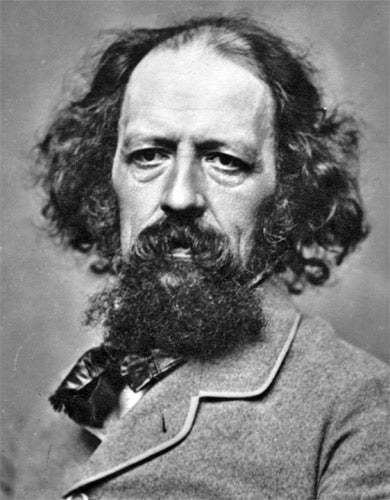The Week in Radio: A grief encounter that will live on in the memory

I can't personally vouch for this but the story goes that Tennyson, when he used to give public readings, was apparently able to induce orgasms in women in the audience, just through the rhythmic crescendo of his voice. What do I know, having once seen an unforgettable rendition of "Maud" by Kenneth Branagh, is that his poems can make stunning listening. Radio 4, perhaps wanting to avoid unrestrained reactions in its female listeners, opted for an adaptation of "In Memoriam" for Tuesday's Afternoon Play.
Tennyson's great poem cycle of bereavement was devoted to the loss of Arthur Hallam, his university friend. Though Hallam was engaged to marry Tennyson's sister, there's always been an ambiguity about the sheer devastation that Tennyson felt. Phrases like "I, falling on his faithful heart/ Would breathing thro' his lips impart/ The life that almost dies in me" suggest an unusually erotic emotional response. Starting with the great desolate statement "Ghastly thro' the drizzling rain/ On the bald street breaks the blank day", Tim Dee's production was a brave choice for the afternoon slot. David Bamber kept the tone level and solemn, and Jon Nicholls's violin music was hauntingly funereal. My only reservation was that the sequence of thought in the cycle does require the kind of concentration we don't all have at that time of day. But, in future, I'd say to Radio 4, be daring. Do "Maud".
Might poetry, like the maxi dress, be the art form of economic recession? With its focus on introspection, spiritual crisis, private and domestic detail, it's tempting to see poetry's popularity an economic indicator – just look at Jo Shapcott winning the Costa prize, or the news that Radio 4's controller, Gwyneth Williams, is planning a series of Round Britain poetry masterclasses. Apparently, the network is keen to "tap in to the connection between listening to contemporary poetry and the current explosion in poetry writing". And this week we had A Poet's Year, a meditative series in which the national poet of Wales, Gillian Clarke, charted events in her Welsh smallholding, from visits by an otter, to hay-cutting and the appearance of fruit on her quince tree. The words were beautifully expressed. Starlings were described as "a black cloud of birds, so many they sound like tuning cellos". And yet the poet's own narration, I fear, was simply soporific. Unlike Tennyson, Gillian Clarke's voice was more likely to induce sleep than excitement.
Far more dramatic events were the subject of Saturday afternoon's play, My Dear Children of the World, which was set around the contentious issue of Pope Pius XII's Christmas message in 1942. In the face of growing evidence of Nazi atrocities, Pius, played by Hugh Ross, is urged by British and American envoys to speak out. But he prevaricates. When the American chargé d'affaires Harold Tittmann urges him to condemn the extermination of the Jews, Pius replies, "We will not compromise our impartiality." "How can one remain impartial about the mass extermination of civilians?" asks Tittmann in frustration. "Have you read The Imitation of Christ?" replies the Pope. "In judging others a man labours vainly and easily sins." The Pope's moral evasions were skilfully done, and the charge of cowardice hovered, even while the Pope tried to draw parallels between the Allied bombing of German cities and the actions of the Nazis. At bottom, Hugh Costello's play suggests Pius was restrained both by a fear of communism and of being seen to take sides and in the event he bungled it, mentioning neither Nazis or Jews in his Christmas message. This was a brilliant subject for a drama, and despite slight unease about putting words into the Pope's mouth and the curious device of a ghostly nun, murdered at Auschwitz, it proved again, just as poetry does, the vital importance of the right choice of words.
Join our commenting forum
Join thought-provoking conversations, follow other Independent readers and see their replies
Comments
Bookmark popover
Removed from bookmarks